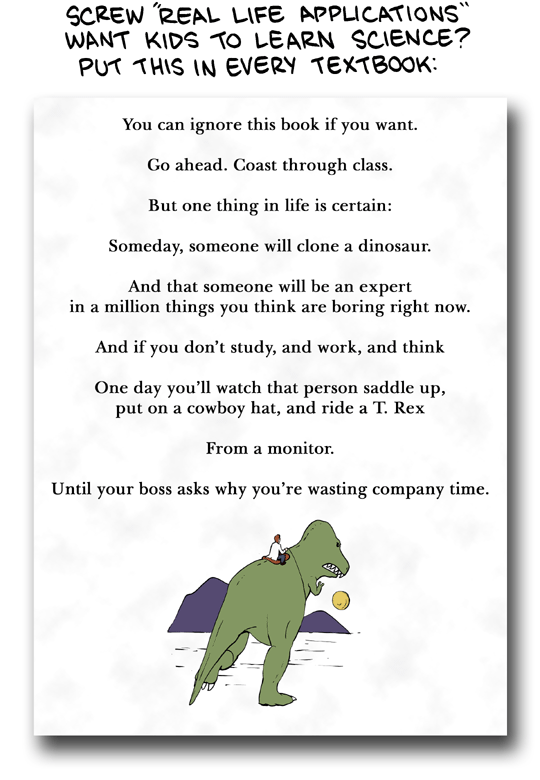
Ah, Conan! Truly the funniest man on TV.
One pound of inference, no more, no less. No humbug, no cant, but only inference. This task done, and he would go free.

"I'm D.U.I., hardly ever caught sober,
And you're about to get ran the fuck over."
We firmly believe that free labour, properly exercised, is cheaper than slave labour; but there is no pretence to say that it is so at this moment in our West India colonies; and we undertake to show, in an early number, in connexion with this fact, that the existence of the high protecting duties on our West India produce has done more than anything else to endanger the whole experiment of emancipation.
But, moreover, our West India monopoly,—the existence of the high prohibitory differential duty on sugar, is the greatest, strongest, and least answerable argument at present used by slave-holding countries against emancipation. The following was put strongly to ourselves in Amsterdam a short time since by a large slave owner in Dutch Guiana:—"We should be glad," said he, "to follow your example, and emancipate our slaves, if it were possible; but as long as your differential duties on sugar are maintained, it will be impossible
...
But now were it otherwise:—have the professors of these opinions ever considered the huge responsibility which they arrogate to themselves by such a course? Let these men remember that, by seeking to coerce the slave-labour producer in distant countries, they inflict a severe punishment on the millions of hard-working, ill-fedconsumers among their fellow countrymen; but they seem always to overlook the fact, that there is a consumer to consider as well as a producer;—and that this consumer is their own countryman, their own neighbour, whose condition it is their first duty to consult and watch;
We must, however, in doing so, make a great distinction between the two classes of persons who are now found to be joined in an alliance against this application of free-trade principles; two classes who have always hitherto been so much opposed to each other, that it would have been very difficult ten years since to have conceived any possible combinations of circumstances that could have brought them to act in concert: we mean the West India interest, who so violently opposed every step of amelioration to the slave from first to last; and that body of truly great philanthropists who have been unceasing in their efforts to abolish slavery wherever and in whatever form it was to be found. To the latter alone we shall address our remarks.
We trust we shall be among the last who will ever be found advocating the continuance of slavery, or opposing any legitimate means for its extinction; but we feel well assured that those who have adopted the opinion quoted above, have little considered either the consequences or the tendencies of the policy they support.
For all the talk about practical electioneering, some of [the Tea Partiers] teetered on the edge of the extreme and wacky. Mr Tancredo denounced the “cult of multiculturalism” ... Andrew Breitbart, the founder of a news site (Breitbart.com), railed in a speech against the hostile “mainstream media” in hock to the far left.Wacky! Extreme!
To Wei Ba, who has Lived Away from the Court
Like stars that rise when the other has set,
For years we two friends have not met.
How rare it is then that tonight
We once more share the same lamplight.
Our youth has quickly slipped away
And both of us are turning grey.
Old friends have died, and with a start
We hear the sad news, sick at heart.
How could I, twenty years before,
Know that I'd be here at your door?
When last I left, so long ago,
You were unmarried. In a row
Suddenly now your children stand,
Welcome their father's friend, demand
To know his home, his town, his kin -
Till they're chased out to fetch wine in.
Spring chives are cut in the night rain
And steamed rice mixed with yellow grain.
To mark the occasion, we should drink
Ten cups of wine straight off, you think -
But even ten can't make me high,
So moved by your old love am I.
The mountains will divide our lives,
Each to his world, when day arrives.
DA: Pa. abortion doc killed 7 babies with scissorsUh, isn't that what he's paid to do?
A doctor who provided abortions for minorities, immigrants and poor women in a "house of horrors" clinic has been charged with eight counts of murder in the deaths of a patient and seven babies who were born alive and then killed with scissors, prosecutors said Wednesday.Oh, the babies were outside the womb at the time. Send in the prosecutors!

JAPANESE researchers will launch a project this year to resurrect the long-extinct mammoth by using cloning technology to bring the ancient pachyderm back to life in about five years time, a report yesterday states.


When you see my face,hope it gives you hell,hope it gives you hell.When you walk my way,hope it gives you hell,hope it gives you hell.
Truth be told, I miss you.And truth be told, I'm lying.

H&H is an extremely sketchy investment and even got the dreaded "going concern" notice last March as its auditor shared doubts about the company's future. The company reported less than $300,000 in revenue last quarter but lost $1.3 million, the Post reports.So it might not exist as a company next year. What's the big deal?
There are some funny loans at the company as well, the Observer notes. H&H lent $141,000 to what it describes as "an entity in which our chairman's brother is an officer and owner."Now that's governance you can take to the bank! As long as it's a bank owned by your cousin's husband.
"You can double your money right now,"
"Just get what you can afford."
"They are no joke get in now."Because people who invest in OTC markets are largely imbeciles, the share price rose 240% by the close of the next day's trading. Originally this was reported as a stroke of financial genius - 50 Cent had just increased the value of his holding by $8.7M!
"I own HNHI stock thoughts on it are my opinion. Talk to financial advisor about it."
"HNHI is the right investment for me it may or may not be right for u! Do ur homework."Apparently the financial genius is having second thoughts about the whole thing.


| Name | Known For | Duet Year | Done Anything Worthwhile Since? |
| Rob Thomas | Push, 3am (1996) | 1999 | Released lots of shitty songs, 'Lonely No More' peaked at 5 on US charts but was still awful |
| Everlast | What It's Like (1998) | 1999 | No singles made Billboard charts, career death in slow motion |
| Eric Clapton | Layla (1971), Tears in Heaven (1992), lots of other good stuff | 1999 | No, but he's still cool |
| Lauryn Hill | The Miseducation of Lauryn Hill (1998) | 1999 | Crashed and burned on second album, now hides from publicity |
| Wyclef Jean | Killing Me Softly (with the Fugees, 1996) | 1999 | Ran For President of Haiti and got universally mocked, filed for bankruptcy |
| Dave Matthews | Crash, 7x Platinum (1996) | 1999 | Yep, he's still got it. 2002's Busted Stuff was a great album |
| Michael Jackson | Billie Jean (1983), Bad (1987), Liberian Girl (1987), Black or White (1991), kicking ass | 2001 | Released some crap songs and then died, thereby making lots of people who'd called him a pedophile for the past decade pretend they'd liked him all along |
| Seal | Crazy (1992), Kiss From a Rose (1995) | 2002 | May as well not have |
| Chad Kroeger (of Nickelback) | How You Remind Me (2001) | 2002 | Album "All the Right Reasons" had commercial success. Got pelted with rocks during a heavy metal concert in Portugal in 2009, caused millions of LOLs as a result |
| Michelle Branch | All You Wanted (2002) | 2005 | Played 'All You Wanted' at concert, said 'Now here's something from my latest album..', whole crowd left (N.B. I have no specific evidence that this happened, but honestly, would you be willing to bet against me on this one?) |
| Steve Tyler (Aerosmith) | Walk This Way (1975), Don't want to miss a thing (1998) | 2005 | Continued to be despised by the other members of Aerosmith |
| Kirk Hammet (Metallica) | One (1989), Enter Sandman (1991), Nothing Else Matters (1992) | 2005 | Kept bitching that people were illegally downloaded his music, found that the strategy of suing your fans is not commercially viable |
Bwaa ha ha ha!!!THE cleaners arrived first - to hose away the filth beneath Clovelly beach's shanty town-on-wheels.
They were quickly followed yesterday by police and council rangers determined to evict a group of illegal campers who had set up their base at Clovelly beach.
In an operation stretching from Clovelly to Malabar, the inhabitants of 45 vans and stationwagons - about 100 backpackers - awoke at 6.30am to the rapping knuckles of council rangers and police to receive their marching orders.
Unemployment at a record high
People coming, people going, people born to die
Don't ask me, because I don't know why
But it's like that, and that's the way it isWhen faced with the many, varied problems of the planet, Run emphasises two strong conservative themes:
People in the world try to make ends meet
You try to ride car, train, bus, or feet
I said you got to work hard to want to compete
It's like that, and that's the way it is ...
Money is the key to end all your woes
Your ups and your downs, your highs and your lows
Won't you tell me last time that love bought you clothes?
It's like that, and that's the way it is
...
Bills fly higher every day
We receive much lower pay
I'd rather stay young, go out and play
It's like that, and that's the way it is
Won't you tell me last time that love bought you clothes?
You can see a lot in this lifespan
Like a bum eating out of a garbage can
You notice one time he was your man
It's like that (what?) and that's the way it isThe bum eating out of a garbage can is one of the staple images of left-wing sympathy. But Run DMC take this in a very different direction:
You should've gone to school, you could've learned a trade
But you laid in bed where the bums have laid
Now all the time you're crying that you're underpaid
It's like that (what?) and that's the way it is
Huh!
One thing I know is that life is short
So listen up homeboy, give this a thought
The next time someone's teaching why don't you get taught?
Stop playing start praying, you won't be sad...
When you feel you fail sometimes it hurts
For a meaning in life is why you search
Take the bus or the train, drive to school on the church
It's like that, and that's the way it isBut having taken such pains to emphasize the ways that people can help themselves, they end with a recognition of Matthew 7:1-2
Here's another point in life you should not miss
Do not be a fool who's prejudice
Because we're all written down on the same list
It's like that (what?) and that's the way it is.Preach it, Reverend!

Call all you want but there's no one home
And you're not going to reach my telephone.
...
Stop telephoning me...Truth be told, it was probably a year since I'd heard the noun form in the wild, and perhaps a decade since I'd heard the verb form. And they sound odd and slightly jarring, in a way that you can't quite pin down. In fact, it was the Lady Gaga song itself that made me realise how long it had been since I'd heard the word used.
'Muttahida Qaumi Movement (MQM), Chief Altaf Hussain had a telephonic conversation with the Chief of Jamiat-i-Ulema Islam (JUI-F) Maulana Fazalur-Rehman on Tuesday.'The subcontinent sticks to old-world English long after the originators have given it up. I remember my uncle talking about reading a plaque in India saying that a particular king had 'no male issue' (i.e. had no sons). When did you last hear that from a native speaker?




The Prime Minister's invitation to the opposition to join a bipartisan group came as authorities continued to search for more victims from the boat which smashed into rocks at Christmas Island yesterday, killing at least 28 men, women and children. ...
The boat, with up to 100 asylum-seekers aboard, was washed onto rocks and broke up, throwing men, women and children into the water. At least 42 people survived, including 11 children, but authorities are still unsure how many remain missing.
The Prime Minister's invitation to the opposition to join a bipartisan group came as authorities continued to search for more victims from the boat which smashed into rocks at Christmas Island yesterday, killing at least 28 men, women and children. ...